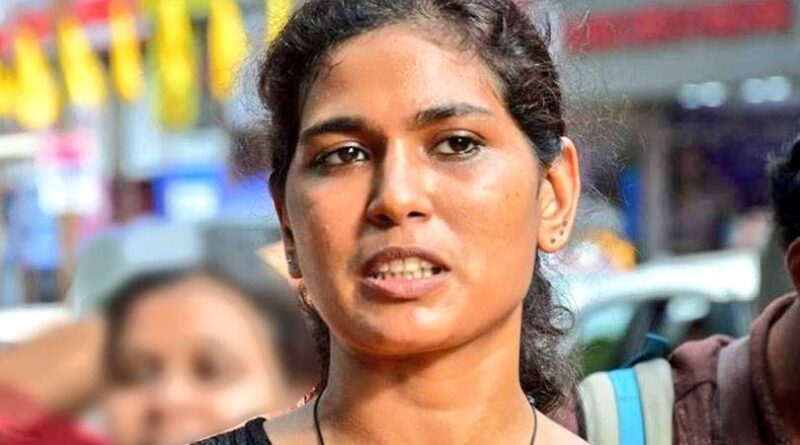Meet Rehana Fathima, the activist who prevailed in a ‘nudity’ lawsuit at the Kerala high court
Rehana Fathima was exonerated by the Kerala High Court, which emphasised that a woman’s choice about her body is at the “very core of her fundamental right to equality and privacy.”
Rehana Fathima, a Kerala-based activist, received relief on Monday in a POCSO case when the high court cleared her, highlighting the fact that the fairer sex is frequently denied the right to autonomy over their bodies and is bullied, discriminated against, isolated, and persecuted for making decisions about their bodies and lives.
In 2020, a video of Fathima that featured her half naked and covered in artwork created by her young children went viral. She was then taken into custody and her bail requests were repeatedly rejected.
Rehana Fathima: Who is she?
- Rehana Fathima argued in her appeal to the Kerala high court that the body painting was intended as a political statement against society’s presumption that a woman’s naked upper body is sexualized in all situations but a man’s upper body is not subjected to this presumption.
- On the basis of a complaint made by BJP OBC Morcha leader AV Arun, the lady had already been detained by police in the Pathanamthitta district under the Information Technology Act and the Juvenile Justice Act.
- Fathima also made headlines after she was persecuted by some groups for trying to enter the Lord Ayyappa shrine in Sabarimala after the Supreme Court approved women of menstrual age to do so.
- Nevertheless, this wasn’t the first time Fathima made headlines. She and her lover Manoj K Sreedhar took part in the contentious ‘Kiss of love’ demonstration against moral policing in Kochi in 2014.
- Earlier, she had participated in the annual Onam tiger dance (Pulikali), a well-attended event in Thrissur that often draws all-male troupes, in an effort to undermine pillars of male domination.
- Fathima was raised by an observant Muslim household, thus she had to go to school at five times daily for namaz and to operate a madrassa. But Fathima claims that after the passing of her father, her outlook on religion was significantly altered.
What has the High Court of Kerala said?
- In releasing Fathima on Monday, Kerala High Court Justice Kauser Edappagath stated that no one could conclude from the claims made against the 33-year-old campaigner that her children were exploited for any actual or simulated sexual actions, let alone for the purpose of sexual enjoyment.
- According to the court, she only let her kids to paint on her body as a canvas.
- The judge said that it was “harsh” to characterise such “innocent artistic expression” as the use of a kid in a real or fictitious sexual act.Nothing indicates that the kids were utilised in pornographic content. The video has no indication of sexuality.
- It went on to say that while men’s upper body exposure in naked form is never viewed as offensive or sexualizing, “a female body is not treated in the same way.”
- The court further stated that some people believe female nudity to be forbidden and only appropriate for sensual purposes, and that Fathima’s objective in circulating the film was to “expose this double standard prevailing in society.” “Sex and nudity shouldn’t be related. The mere perception of a woman’s bare upper torso should not automatically be interpreted as sexual. In the same way, showing a woman’s naked body cannot be characterised as vulgar, indecent, or sexually explicit in and of itself, Justice Edappagath remarked.




